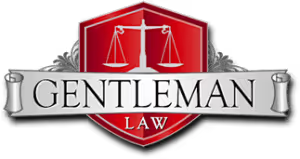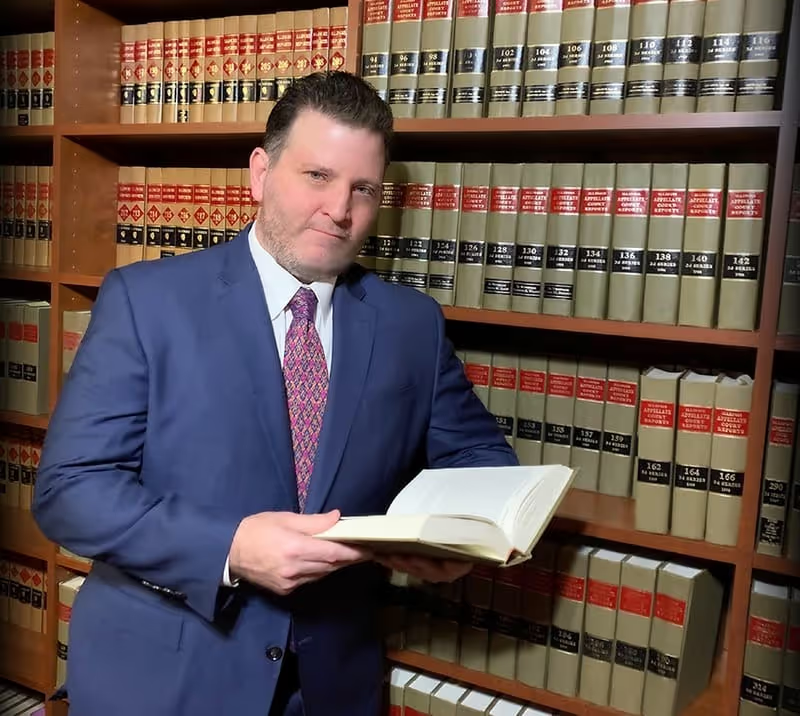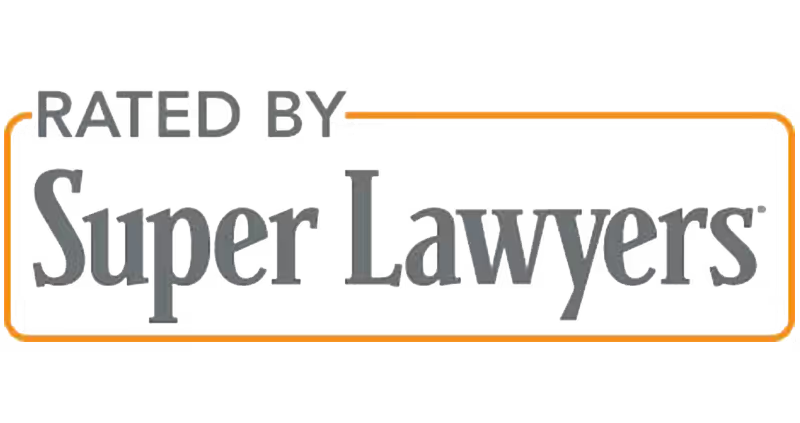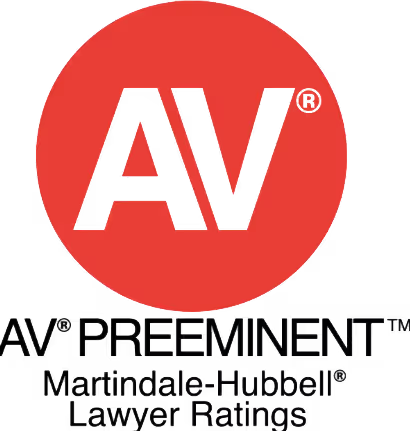Lender Liability, Guarantors, Borrowers, Mortgagors, Debtors, and Those Who Owe Money
For more than 25 years, I have represented borrowers, guarantors, mortgagors, debtors, and individuals who have borrowed or owe money. Throughout my career, I have NEVER represented banks or corporate lenders. Instead, I have SOLELY represented individuals, family businesses, and small businesses that have borrowed money. I've dedicated my entire career to helping people who, for various reasons, have encountered difficulties repaying loans or dealing with banks and lenders.
In my experience, 99.9% of borrowers are honest, hard-working people who fully intend to repay their loans. Most who cannot repay have suffered unexpected or unfortunate events—often fraud or misconduct by third parties or even by the lending bank itself. Other times, borrowers face unexpected tragedies like COVID-19, medical emergencies, or death in the family.
Whatever happens to you, your family business, or small business, it's crucial to understand that you have important legal rights that can protect you and your assets. Don't wait until it's too late. Seek legal counsel even if you believe there's no solution, because an experienced attorney likely knows numerous ways to protect you and your family, minimize what you pay, and shield assets like your home, car, or investments.
I want to clarify that I am not a bankruptcy attorney and do not file bankruptcies. Instead, my goal is to help clients avoid bankruptcy by asserting their legal rights, which may include shielding assets from collection or pursuing litigation against lenders or third parties whose actions prevented the client from paying debts. While I've been involved in dozens of bankruptcy cases and am familiar with bankruptcy law, I focus on bankruptcy avoidance. I do have trusted colleagues who can file bankruptcies if necessary, but my primary goal is helping people and businesses avoid that option.
The Lender-Borrower Relationship
The lender-borrower relationship is strictly arm's length. The lender provides loans, prepares loan documents, and the borrower is bound by those terms. Lenders provide no advice, consulting, or management participation to avoid any perception of acting in the borrower's best interest. In fact, lenders have a fiduciary duty to their employer to monitor borrowers' financial conditions and act in the bank's best interest—ensuring loan repayment while maintaining prudent standards of care.
Remember: lenders will turn on borrowers at the first sign of trouble, claiming fiduciary duty to their shareholders. The legal system is structured to favor lender interests over borrower interests. If you're having repayment difficulties, the lender is NOT your friend. Consult an attorney immediately—the investment will position you optimally to handle the situation.
The Growth of Lender Liability Claims
Banks once worried only about borrower defaults. Today, they face a new concern: borrowers filing lawsuits under lender liability doctrines and winning. Liability can exceed loan amounts, compounded by legal fees and defense costs. Multimillion-dollar jury verdicts have shaken the banking industry. Bankers now face malpractice suits like other professionals.
Borrowers facing financial difficulty often feel at the lender's mercy, fearing loan acceleration and bankruptcy. Today, the balance of power shifts when borrowers seek legal advice. Borrowers are fighting back and winning. However, lenders face a dilemma: potential liability whether they help troubled debtors or not.
As a developing legal area, lender liability lacks historical foundation. While common law recognized the theories now imposing liability, their application to lending is recent. The situation is changing, though banks still enjoy favorable treatment from laws written in their favor. Sophisticated lawyers aggressively represent borrower interests, creatively adapting traditional theories to the lending industry.
I. Claims That Can Be Asserted Against Lenders
The following claims can be affirmatively asserted against lenders, potentially resulting in damages or offsets against amounts owed:
Breach of Contract
Lenders can be liable for breaching oral, implied, or written contracts. Common claims include failure to:
- Advance funds after loan commitment
- Extend loans or honor modifications after agreement
- Forbear as promised
- Take required actions under loan documents
- Properly interpret loan documents
An attorney can identify contract terms, requirements, and breaches.
Breach of Implied Covenant of Good Faith and Fair Dealing
This long-standing obligation in commercial banking requires lenders to ensure their actions align with policies and regulations while avoiding inducing false security in borrowers. Good faith encompasses avoiding deception, misrepresentation, and abuse of power. It requires mutual notice and communication—neither party should injure the other according to their agreement terms.
Improper Control
Liability often arises when lenders interfere with or control borrower operations, typically to prevent bankruptcy or salvage loans. Even without financial erosion, lenders may exert control to monitor collateral. The rationale: controlling lenders benefit at the expense of borrowers or other creditors. Control manifests through voting rights, board participation, management control, financial control, or interference with other contracts. Excessive control can result in liability for lost profits.
Economic Duress
Courts distinguish between making threats and threatening legal actions. Common law duress requires:
- Threat to perform an act without legal right
- Threat causing the victim to act against their will
- Imminent restraint from the threat
- No present means of protection
Economic duress differs, arising when lenders force borrowers to choose between bankruptcy, credit damage, or profit loss due to loan restrictions. Courts consider all circumstances to infer lender intent.
Tortious Interference with Contract
Occurs when lenders intentionally induce breach of borrower contracts with third parties.
Inappropriate Collateral Sales
Under the UCC, collateral sales must be commercially reasonable in method, manner, time, place, and terms. Sales may be "commercially unreasonable" if lenders rely on knowingly low appraisals or provide insufficient sale publicity.
Instrumentality Theory
Lenders face liability when exercising such control that borrowers become lender instrumentalities.
Breach of Fiduciary Duty
Elements establishing fiduciary relationships:
- Borrower faith, confidence, and trust in the bank
- Borrower inequality, weakness, or lack of knowledge
- Bank dominion, control, or influence over borrower affairs
Consequences include requiring lenders to prioritize borrower interests, disclose confidential information, and avoid self-dealing. Fiduciary relationships may arise from business advice, personal financial advising, or interlocking directorships.
Truth in Lending Act (TILA)
TILA, enacted in 1968, requires standardized disclosure for financing products and provides consumer protections. It addresses predatory practices by requiring uniform disclosures and terminology for credit cards, mortgages, and other lending. TILA has been amended multiple times, including through the Dodd-Frank Act and Credit CARD Act of 2009.
TILA provides rescission rights for loans secured by borrowers' existing homes within three days of origination. However, strict time limits apply:
- General claims: One year from violation
- Discovery rule: May extend deadline from discovery date
- Rescission claims: Three years from transaction or property sale
Act quickly—TILA timing is complex.
Other Claims
Various additional claims depend on specific circumstances. Aggressive, imaginative attorneys can assert numerous claims or defenses.
II. Defenses to Lender Claims
The following defenses will NOT help:
- Explanations for default or current inability to pay
- Willingness to settle or develop payment plans
- Accusations of creditor refusal to negotiate
Valid defenses include:
Identity Theft
If debt results from fraudulent activity, creditors must prove you authorized each transaction.
Mistaken Identity
You cannot be liable for another's debt due to similar names or identifying information.
Statute of Limitations
If creditors don't file within legal time limits from your last payment, their case is invalid.
Previous Payments Made
If you made payments not properly credited, provide proof as defense.
Authorized User
If you were an authorized user but never cosigned, you're not liable unless you signed accepting responsibility.
Incorrect Debt Amount
Dispute amounts by demanding plaintiff produce evidence: contracts, billing statements, etc.
Lack of Assignment
Debt buyers must prove they own your debt or face dismissal.
Bankruptcy
Creditors cannot collect debts included in bankruptcy proceedings.
Unreasonable Collateral Sale
If collateral sold below fair market value, you may be relieved from liability and potentially recover damages.
Improper Service
If you never received proper court summons, the case may be dismissed.
Other Defenses
Additional defenses exist based on unique circumstances. Contact an attorney promptly to preserve all defenses.
III. Asset Protection
Borrowers should protect assets when facing lender disputes. Even if you lose, proper planning helps retain assets and shield them from collection. A judgment is merely paper allowing lenders to begin post-judgment proceedings to seize assets. Lawsuits take at least a year, providing time to protect assets. I've helped many avoid collection entirely or create such obstacles that creditors abandon efforts.
The sooner you contact an attorney, the better your chances of avoiding debt or keeping assets.
Asset Protection Methods
Create a Trust: Transfer assets to an irrevocable trust while maintaining control.
Retitle Assets: Transfer to LLCs, corporations, or family limited partnerships.
Give Away Assets: Transfer to spouse, family, or friends through gifts or irrevocable trusts.
Reduce Real Estate Equity: Minimize equity to avoid foreclosure. Options include:
- Obtaining additional loans
- Creating subordinate liens to family/friends
Utilize State Exemptions: Illinois exemptions (735 ILCS 5/12-1001) include:
- IRAs and retirement accounts
- $4,000 property equity
- $2,400 vehicle equity
- Social Security, unemployment, disability benefits
- Alimony, child support
- Life insurance
- College accounts
Offshore Transfers/Cryptocurrency: Jurisdictions like Cook Islands offer asset protection and financial privacy.
Purchase Precious Metals: Convert liquid assets to gold/precious metals stored securely.
Advanced Fee Agreements: Illinois allows paying attorneys substantial fees for future services, exempting funds from creditors. Funds return after matters conclude. I've successfully used this arrangement to shield hundreds of thousands of dollars.
IV. Act Fast
Timing is crucial for asset protection. Aggressive creditors may claim fraudulent transfer under the Illinois Uniform Fraudulent Transfer Act (740 ILCS 160/). The Act identifies transactions intended to hinder, delay, or defraud creditors by examining:
- Whether debtor received equivalent value
- Transfer timing relative to debts
- Debtor's financial condition before/after
- Relationships with transferees
Illinois courts use "badges of fraud" including:
- Concealed transfers
- Retained control over assets
- Transfers anticipating litigation
- Transfers to insiders
While no single factor is conclusive, multiple factors strengthen fraudulent transfer claims. Act quickly with experienced counsel to avoid these challenges.





